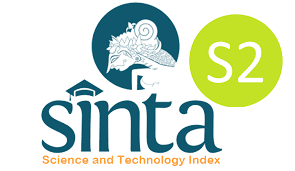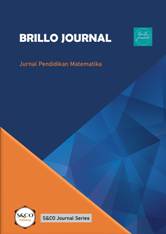Relative Effectiveness of Teachers’ Questioning Strategies in Enhancing Students’ Mathematics Achievement in Gwale Local Government Area of Kano-Nigeria
DOI:
https://doi.org/10.56773/bj.v4i1.59Keywords:
Academic achievement, Mathematics, Questioning strategyAbstract
This study investigated the relative effectiveness of teachers’ questioning strategies in enhancing students’ Mathematics achievement in Gwale Local Government Area of Kano State, Nigeria. The study employed a quasi-experimental design. The population for this study consisted of 8,785 JSS II students. A sample of 135 JSS II students from three intact classes was purposively selected. A simple random sampling technique was used for the study. The instrument used for the pretest and posttest was the Mathematics Achievement Test (MAT), with a reliability coefficient of 0.78 calculated using Pearson’s correlation coefficient (r). The collected data were analyzed using descriptive statistics, such as mean and standard deviation, to answer the research questions, and inferential statistics, including paired sample t-tests and analysis of variance (ANOVA), to test the hypotheses at a 0.05 level of significance. The findings revealed that divergent and convergent questioning strategies had a significant effect on enhancing students’ Mathematics achievement. Additionally, the study found a significant difference between the divergent, convergent, and conventional methods. The researcher recommended that divergent and convergent questioning strategies be included in the Mathematics curriculum for teacher education programs.
References
Ahmed, M. U., Aliyu, A. Z., & Liman, A. M. (2024). Utilization of Instructional Materials and Junior Secondary Students’ Academic Achievement in Geometrical-Shape. Brillo Journal, 3(2), 102-112. https://doi.org/10.56773/bj.v3i2.54
Bichi, A. A., Suleiman, A. H. & Ali, H. (2019). Students’ achievement in mathematics: Analysing the influence of gender and school nature. Contemporary Educational Researches Journal, 9(3), 50-56. https://doi.org/10.18844/cerj.v9i3.4293
Desai, F. (2016, August 31). Five questions to consider during strategic planning section. Forbers. https://www.forbes.com/sites/falgunidesai/2016/08/31/five-questions-to-consider-during-strategic-planning-sessions/
Dos, B., Bay, E., Aslansoy, C., Tiryaki, B., Cetin, N., & Duman, C. (2016). An analysis of teachers’ questioning strategies. Educational Research and Reviews, 11(22), 2065-2078. https://doi.org/10.5897/ERR2016.3014
Duru, D. C., Obasi, C. V., & Oguoma, C. (2024). Predictive Analysis: Academic Resilience as a Determinant of Mathematics Achievement among Senior Secondary School Students in Nigeria. Brillo Journal, 3(2), 72-82. https://doi.org/10.56773/bj.v3i2.48
Enríquez, J. A. V., Pereira de Oliveira, A. M., & Valencia, H. G. (2017). What Mathematic Teachers Say about the Teaching Strategies in the Implementation of Tasks. English Language Teaching, 11(1), 65-79. https://doi.org/10.5539/elt.v11n1p65
Federal Republic of Nigeria. (2014). National policy on education (6th Edition). NERDC Press.
Ibrahim, B. M. (2022). Effects of Peer-assessment Strategy on Students’ Academic Achievement in Mathematics in Senior Secondary Schools of Nasarawa Local Government Area, Kano State, Nigeria, International Journal of Research in Education and Sustainable Development, 2(10), 15-25.
Ibrahim, B. M., & Maude, L. K. (2022). Comparative Analysis of Students’ Performance in WAEC and NECO English Language and General Mathematics Examinations of Senior Secondary Schools in Kano State, Nigeria (2015-2019). African Journal of Science, Technology and Mathematics Education (AJSTME), 8(1), 480-487.
Ifeanacho, A. O., & Osuagwu, C. T. (2016). Effect of convergent and divergent methods of teaching on students’ Mathematics achievement in senior secondary schools in Umuahia education zone. ASSEREN Journal of Educational Research and Development (AJERD) 3, 79-87.
Igbo, J. N., Okafor, N., & Eze, R. (2014). Effect of Peer tutoring on the mathematics achievement of learning disabled children. Bulgarian Journal of Science and Education Policy (BJSEP), 10(1).
James, A. O., & Folorunso, A. M. (2012). Effect of Feedback and Remediation on Students’ Achievement in Junior Secondary School Mathematics. International Education Studies, 5(5), 153-162. https://doi.org/10.5539/ies.v5n5p153
Khair, T. M. A., Khairani, A. Z., & Elrofai, T. A. (2012). Level of Students’ Achievement in Mathematics at the End of Elementary Education in Yemen. US-China Education Review, A(6), 588-593.
Kira, E., Komba, S., Kafanabo, E., & Tilya, F. (2013). Teachers’ Questioning Techniques in Advanced Level Chemistry Lessons: A Tanzanian Perspective. Australian Journal of Teacher Education, 38(12), 66-79. https://doi.org/10.14221/ajte.2013v38n12.7
Lemo, O. O. (2014). Development of self-instructional manual for automobile technology craftsman in South Western, Nigeria [Unpublished PhD thesis]. University of Nigeria, Nsukka
Marshall, J. (2019). Rise to the challenge: Designing rigorous learning that maximizes student success. ASCD.
Narad, A., & Abdullah, B. (2016). Academic Performance of Senior Secondary School Students: Influence of Parental Encouragement and School Environment. Rupkatha Journal on Interdisciplinary Studies in Humanities, 8(2), 12-19. https://doi.org/10.21659/rupkatha.v8n2.02s
Omaka, N. T., & Osuafor, A. M. (2020). Effect of Peer Assessment Technique on Secondary School Students’ Achievement in Biology in Awka Education Zone. South Eastern Journal of Research and Sustainable Development (SEJRSD), 3(1), 57-77.
Opara, I. M., & Uma, A. A. (2020). Effects of teachers’ questioning strategies on students’ achievement in Social Studies in Obio-Akpor Local Government Area of Rivers State, Nigeria. Advances in Social Sciences Research Journal, 7(3), 211-219. http://dx.doi.org/10.14738/assrj.73.7913.
Sodangi, U., Musa, R., & Suleiman, B. (2020). An investigation of the effects of teachers’ classroom questioning techniques on the performance of senior secondary school students in Mathematics, Zamfara State, Nigeria. The Eurasia Proceedings of Educational and Social Sciences, 17, 67-74.
Downloads
Published
How to Cite
Issue
Section
License
Copyright (c) 2024 Bashir Mohammed Ibrahim

This work is licensed under a Creative Commons Attribution 4.0 International License.
The authors agree that this article remains permanently open access under the terms of the Creative Commons Attribution 4.0 International License





